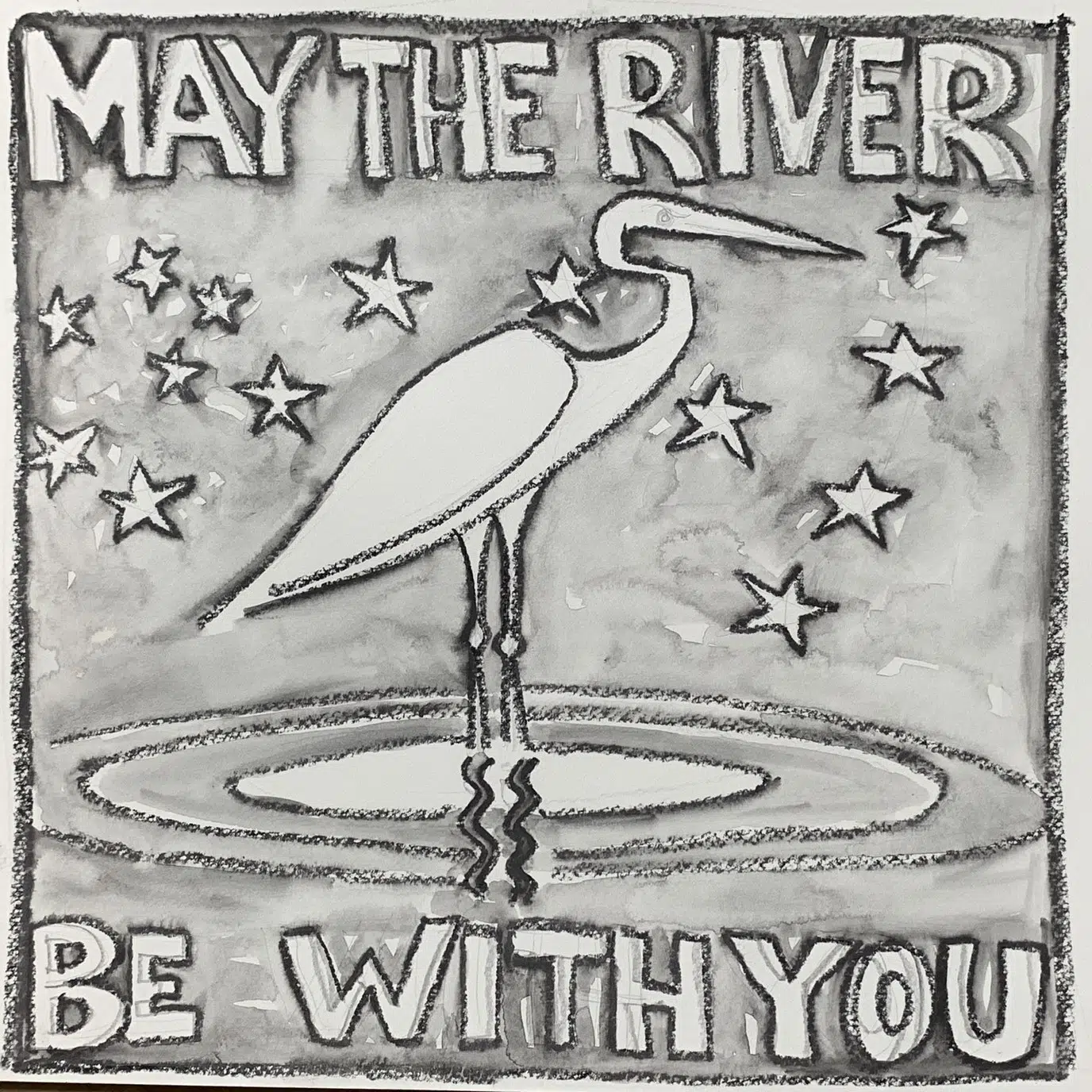Beavers, Wetlands & Climate Change
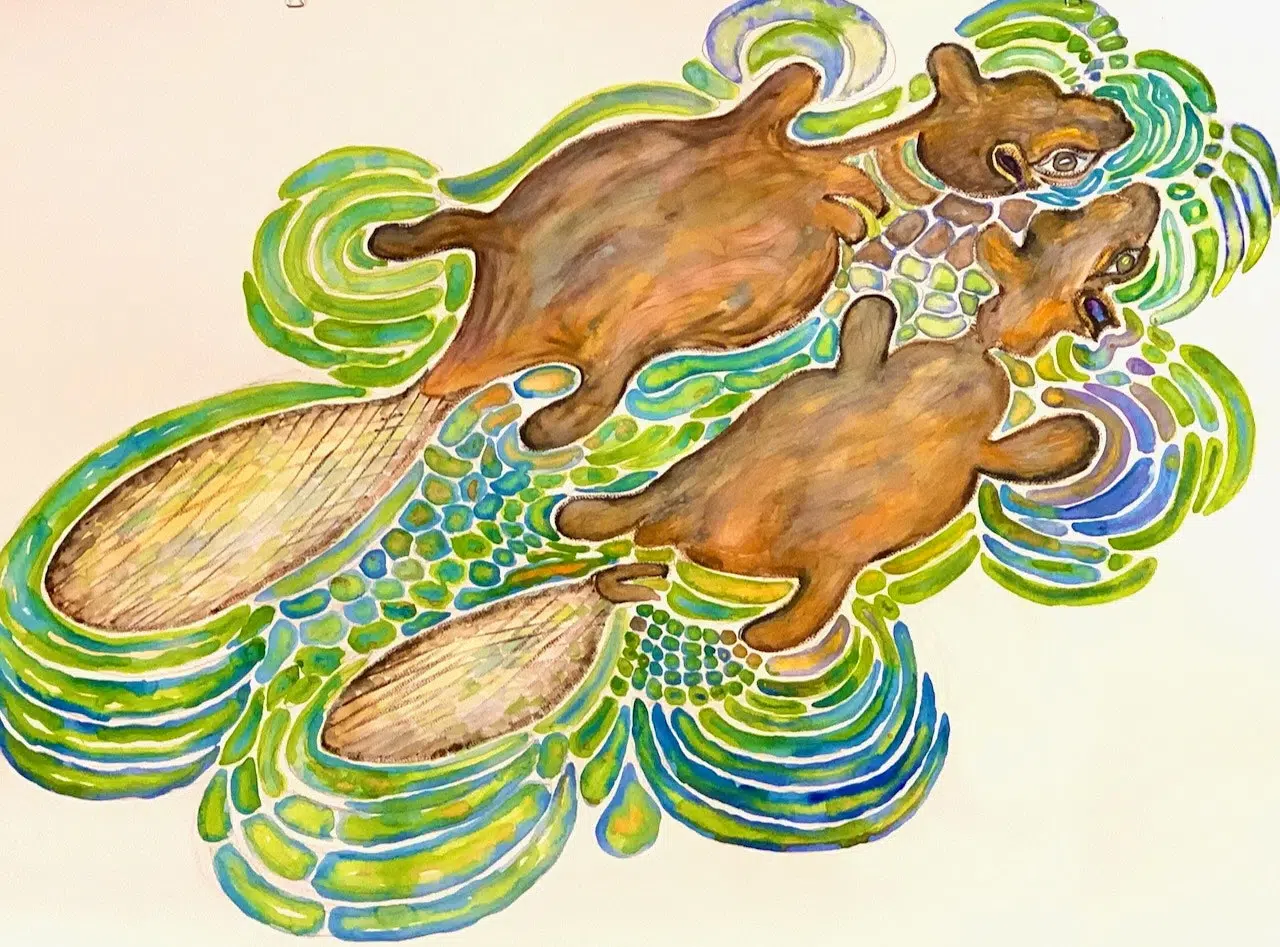
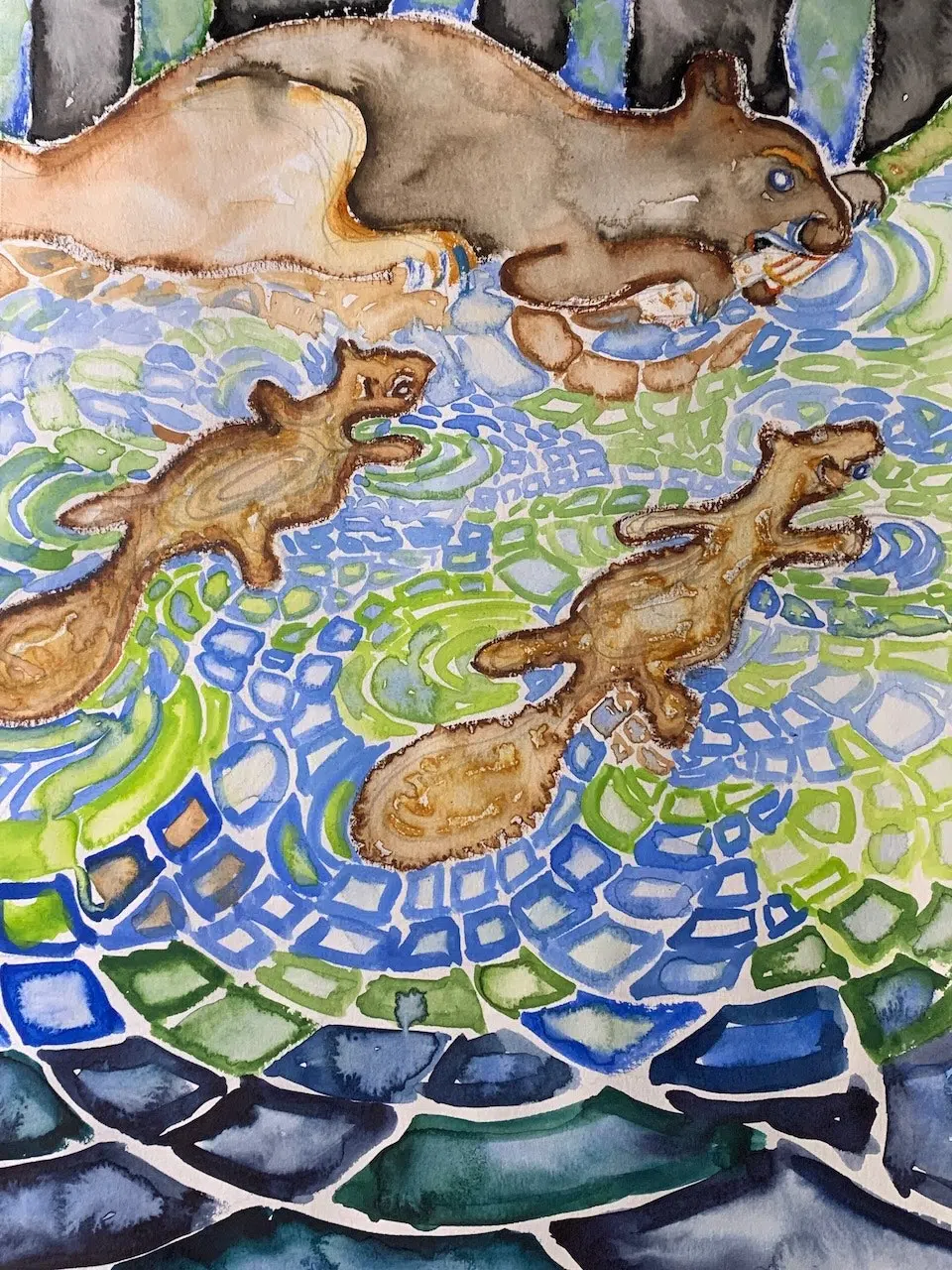
I sit upon an island bluff of sand in a forest of willows watching the sunset on Montezuma Island. The top of the island is to the left of me and the bottom to my right. In the foreground is a pile of driftwood and deadfall that has been stacked eradicably by a high water-eddy in the spring of last year. It’s just about dark and I can hear coyotes trading calls across the river channel with Coyotes from the back channel. Great Blue Herons squall as they head to their rookeries for the evening. Field mice and toads are in transition on the sandy surface as a Great Horned Owl swoops over its territory with a batman-like silhouette.
A lone Beaver leaves his hidden lodge. The shoreline is covered with cleaned willow twigs and branches from last nights foraging. I can tell by the amount that we have a family of beavers living in the pile of driftwood. During low water on the main channel, Beavers will take refuge in wood piles and compromised root balls. When the water rises in the spring, they will build a lodge in the swamps and shore up wetlands in the middle of the island. Tonight with winter upon them, they will stash willow saplings along the shoreline, so they can eat from the water, and take the rest back to their layer for easy access when hungry. A Beaver family consist of an average of eight. Mom, dad, brothers and sisters a year apart.
These nocturnal creatures are “ecosystem engineers” and are very important to maintenance and creation of wetlands. The disappearance of wetlands along with the threat of climate change, Beavers can be our number one ally in protecting and preserving these ecosystems. These wetlands are essential to the health of the Mississippi River. They create a haven for spawning fish, become estuaries for wintering waterfowl, sanctuaries for developing invertebrates, help control floods, filter metals and fertilizers from water, replenish aquifers, and create habitats and food for reptiles, amphibians, birds and mammals.
With climate change bearing down upon us, the most important aspect of wetlands is its ability to store a disproportionally large volume of carbon for their size. With that being said, we should honor and protect our beaver population. Let them thrive and help us fight against climate change. They are not a nuisance, but a valuable contributor to the balance of our natural world. Love the Mississippi River. Pass the Mississippi River Restoration and Resilience Initiative (help the cause by taking action here).
-Mark River
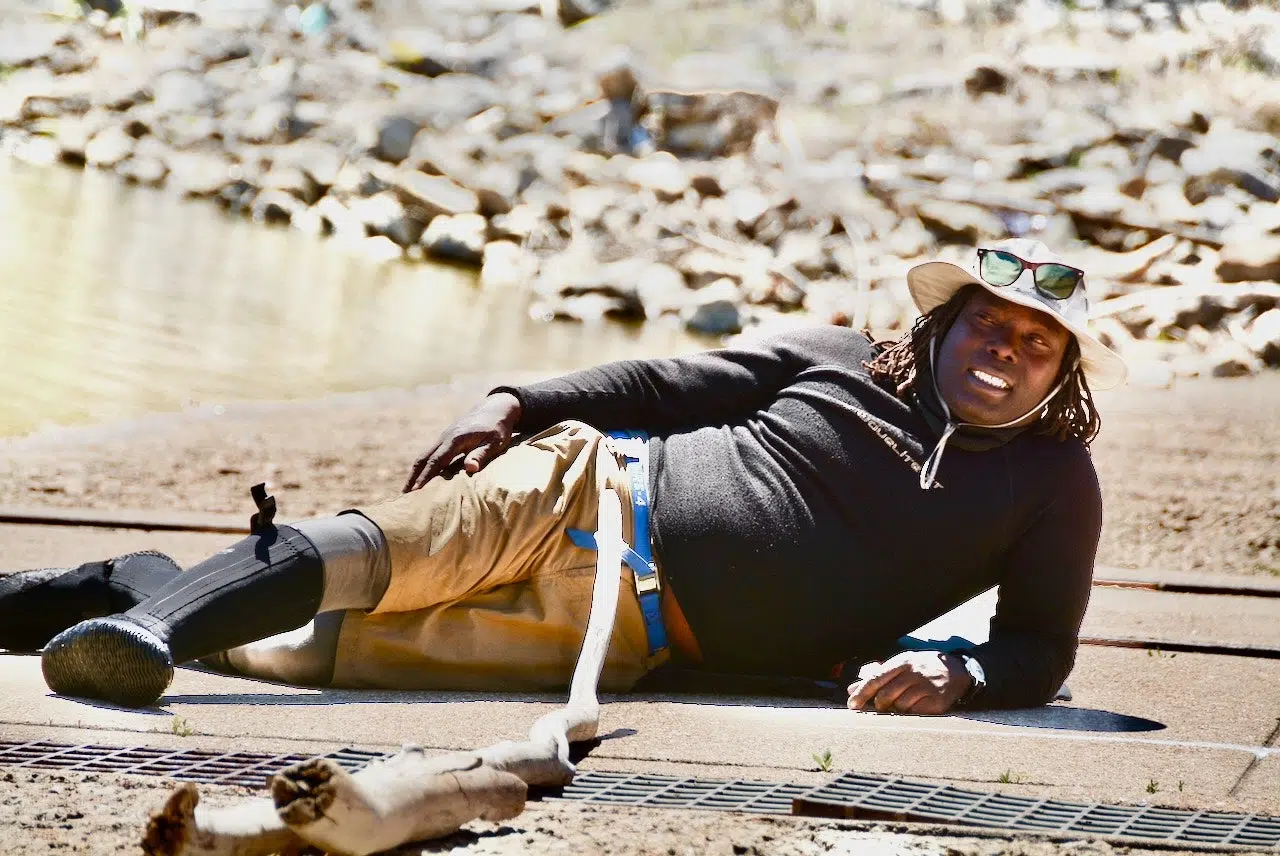
About Mark River:
Mark River Peoples is chief of operations, and chief guide and youth leader for the Quapaw Canoe Company. He produces and narrates an ongoing podcast called “May the River be With You.” He is southern leader of the 1Mississippi Program, which connects people who care about rivers with the people who make decisions about rivers. This winter he is wood-shopping at Quapaw Canoe Company for construction of the next big canoe, and in preparation for a busy spring and summer season guiding adventures and explorations of the Lower Mississippi River. His blog writing is inspired by his work on the Big River — and its many tributaries such as the Yazoo, the Big Sunflower and the Arkansas Rivers.
Mark River grew up hunting and fishing along the river with his father near St. Louis, MO. After attending Central Missouri State University, and becoming defensive back with the New York Giants, Mark left a career in professional football for the river. Mark is a writer for the Lower Mississippi River Dispatch and shares his intimate & nature-filled musings about river life in presentations and online platforms. When not on the water, Mark mentors Mississippi Delta youth and educates them on the importance of the protection and preservation of our national treasure for generations to come. He himself is a tributary to his community, like the stream is to the big river. Mark works hard on changing the perception of our great River and its tributaries. Through river trips, cleanups, and workshops, Mark’s goal is overall systemic health of the Mississippi River.
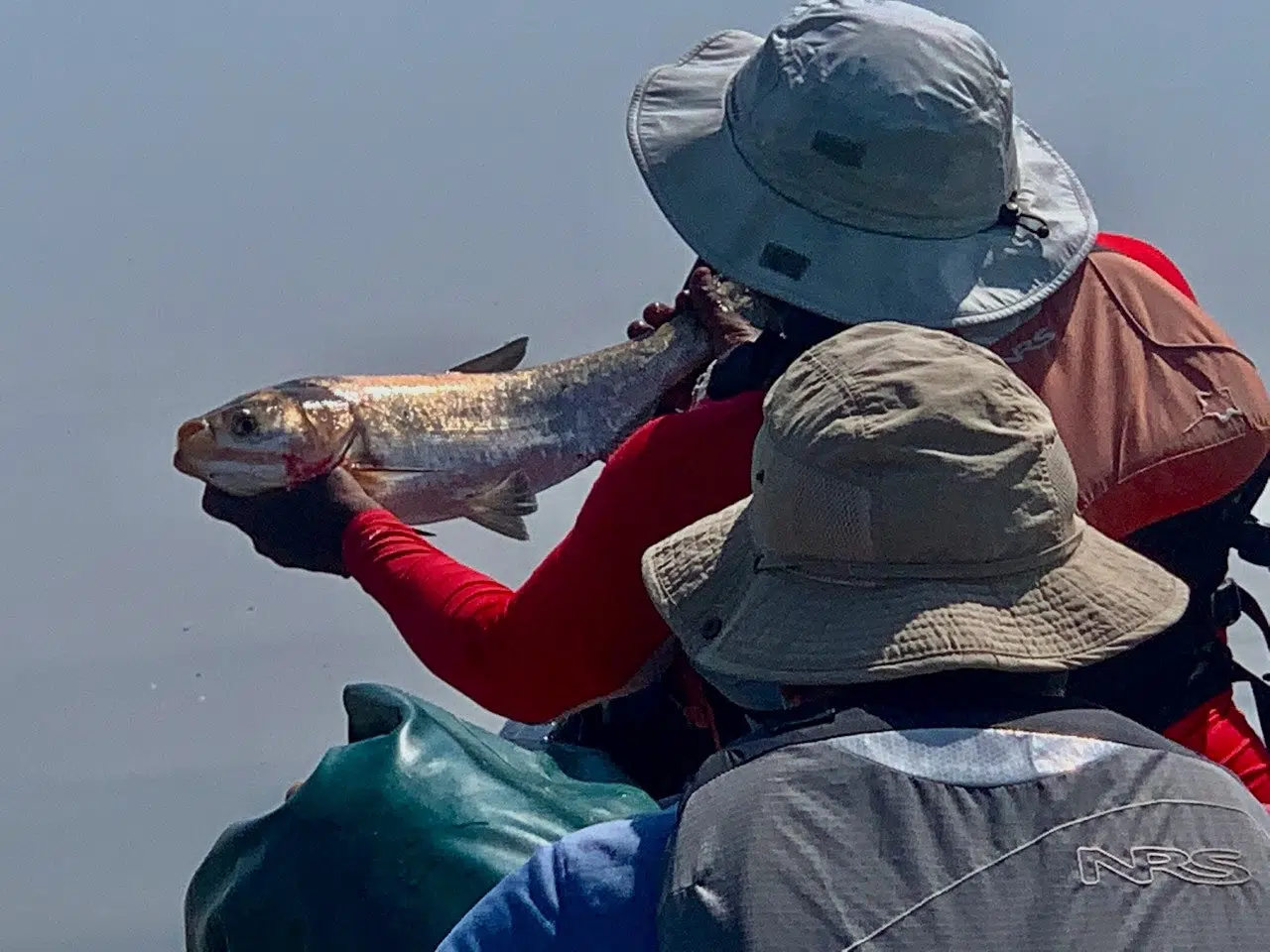
May the River be With You by Mark River Podcast #8 Climate Change
Climate Change is affecting the flooding, ecology and commerce along the Mississippi River. Learn how it is changing everything from the migration of monarchs (butterflies!) hatching season of mayflies to the growth of invasive plantsand the patterns of snow geesewhile also disrupting the flow of barges and their cargo along the waterway.
May the River be With You!
Jump on board the big muddy with your guide Mark “River” Peoples and feel the powerful, storied currents of the Mighty Mississippi River pull at your feet and open your imagination. “May The River Be With You” focuses on how the largest river in North America influences and impacts our culture, from arts and education to ecology and commerce. In each episode, we discuss how the river affects us all in unexpected ways while also featuring music, poetry, tales and myths inspired by the river itself.
Podcast presented by the Quapaw Canoe Company with support from 1Mississippi, and the Mississippi River Network. Hosted by Mark River Peoples. Produced by Coop Cooper. Artwork, music, and narratives by Johnnie “Driftwood” Ruskey.
Join our
COMMUNITY
And Get a Free E-book!
When you sign up as a River Citizen you’ll receive our newsletters and updates, which offer events, activities, and actions you can take to help protect the Mississippi River.
You’ll also get our free e-book, Scenes From Our Mighty Mississippi, an inspiring collection of images featuring the River.
Step 1
Become a River Citizen
Yes! The River can count on me!
I am committed to protecting the Mississippi River. Please keep me informed about actions I can take to protect the Mississippi River as a River Citizen, and send me my free e-book!, Scenes From Our Mighty Mississippi!
Step 2
LEARN ABOUT THE RIVER
We protect what we know and love. As a River Citizen, you’ll receive our email newsletter and updates, which offer countless ways to engage with and learn more about the River. You can also follow us on Instagram, Facebook, X (Twitter) , and YouTube, where we share about urgent issues facing the River, such as nutrient pollution, the importance of floodplains and wetlands, and bedrock legislation such as Farm Bill Conservation Programs.
Step 3
Take Action
There are many ways you can jump in and take action for a healthy Mississippi River. Our 10 actions list includes simple steps you can take at any time and wherever you are. Check out our action center for current action alerts, bigger projects we are working on, and ways to get involved.

